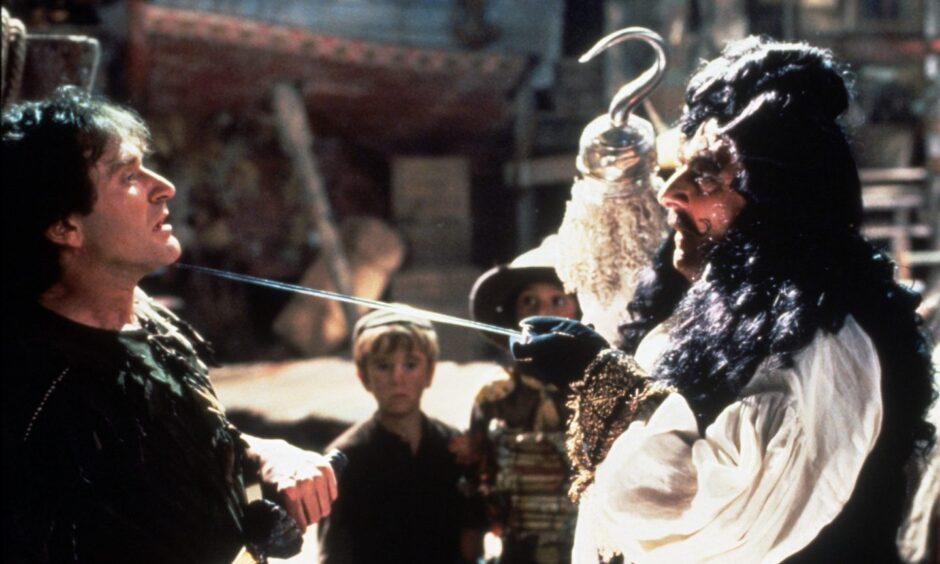
The story of Peter Pan has been brought to the screen many times, starting in 1924 with Paramount’s silent movie, followed by Disney’s 1953 animated film.
Peter Pan was created by Kirriemuir playwright JM Barrie and his idea for the boy who never grew up is believed to have stemmed from the death of his older brother.
Barrie based him on several people including himself.
Walt Disney fell in love with the story when a travelling production came to his town when he was a child and later he played the role of Peter Pan in a school play.
More than 10 Disney feature films have been based on the story, including Hook, starring Robin Williams, and Finding Neverland with Johnny Depp as Barrie.
The boy may never grow up.
But his copyright did.
Back then, old laws made copyright expire 95 years from first production in the US.
The play’s script was not published until 1928 and it was among thousands of copyrighted works which entered the US public domain on January 1 2024.
These included the first drawings of Mickey Mouse in Steamboat Willie.
In the UK the copyright would expire 50 years (now 70) after an author’s death.
Peter and Wendy therefore entered the UK public domain on January 1 1987 but the copyright was brought back to life thanks to an act of generosity from Barrie in 1929.
A gesture which can be traced back to 1882.
JM Barrie was the ‘shyest man in Britain’
His rise to fame is well documented.
Aged eight, Barrie was sent to the Glasgow Academy from Kirriemuir, in the care of his eldest siblings Alexander and Mary Ann, who taught at the school.
He returned to Forfar Academy aged 10 and then at 14, left for Dumfries Academy, and finally to Edinburgh University, where he graduated in 1882.
He then moved to London to pursue his literary ambitions.
His first lodgings were in Grenville Street, behind Great Ormond Street Hospital, which became the inspiration for the Darlings’ family home in Peter Pan.
The Little Minister was Barrie’s first big stage success.
In New York it ran for 300 nights.
The character of Peter Pan first appeared in Barrie’s 1902 novel The Little White Bird in the chapter entitled Peter Pan in Kensington Gardens.
The original stage production of Peter Pan took place at the Duke of York Theatre in London on December 27 1904 yet Barrie doubted its commercial possibilities.
It was a phenomenal success.
Barrie then adapted the play into the 1911 novel Peter Pan and Wendy.
His success as a playwright was set in stone although he always shrunk from the limelight and was known as “the shyest man in Britain”.
In February 1929, Barrie was asked to join the committee for the reconstruction of Great Ormond Street Hospital but he gently declined.
However, he said he might find a way of helping the hospital in the future.
He did.
A few months afterwards he gifted the copyright of Peter Pan.
At the time of his bequest, newspapers estimated Barrie’s gift would raise some £2,000 each year for the hospital.
A steady income for Great Ormond Street Hospital
Barrie later explained the impetus for his gift at the fundraising Guildhall banquet held in his honour in 1930.
He said: “As for Peter Pan, I might say about him something that I did not myself until I came here tonight, that at one time Peter Pan was an invalid in the Hospital for Sick Children in Great Ormond Street, and it was he who put me up to the little thing I did for the hospital.
“But I do thank you all for the splendid response that has enabled us to make such a good start in connection with this munificent object.”
In the days before the creation of the National Health Service, Great Ormond Street was entirely dependent on donations and support from the public.
The gift of Peter Pan provided a steady income which was significant at the time.
Barrie had countless friends amongst the children and was a frequent visitor to the hospital of which he became a patron.
In increasingly ill health, Barrie spent his 77th birthday in 1937 on a sick bed suffering from an attack of lumbago.
He recovered sufficiently to keep a number of engagements, but on the morning of Wednesday, June 9, he complained of feeling ill.
He was taken from his top floor flat overlooking the Thames to a West End nursing home, where it was stated that he was suffering from bronchial pneumonia.
His condition was causing considerable anxiety.
He spent a week in bed.
The gravity of his condition was such that relatives were sent for.
A bulletin was issued saying that his condition had become “very grave” following a midnight visit from the King’s physician.
Child patients in Great Ormond Street Hospital prayed for “the Peter Pan man” to get well and to come and see them again soon.
Prayers were offered, too, by the staff.
The last gift to reach the sick room was a sheaf of perfumed lilies.
It was sent from Great Ormond Street Hospital.
He was brought home to Kirriemuir
Barrie died on June 19 1937.
At his request, he was buried in the family burial plot in Kirriemuir Cemetery, his name added below those who had gone before him.
His funeral was held at St Mary’s Episcopal Church in Kirriemuir.
The Town Hall flag hung at half-mast.
In tribute, David Smith, Town Clerk of Kirriemuir, said: “Sir James was our own.
“We mourn him as a son but not forgetting that he belonged to the world as well as his birthplace.”
Barrie confirmed in his will that Great Ormond Street Hospital would retain the copyright to Peter Pan.
It provided badly needed funds with Peter Pan featuring in so many plays, books and films over the next 50 years.
But the original British copyright expired in 1987.
All revenues stopped overnight.
Lady Callaghan, chairman of special trustees for the hospital, was instrumental in reminding lawmakers of Barrie’s wishes for the copyright of Peter Pan.
It worked.
Her husband, Lord Callaghan, the former British prime minister, succeeded in securing a unique amendment to the Copyright, Patent and Designs Act of 1988.
Peter Pan was in the public domain elsewhere in Europe but Westminster voted to give Great Ormond Street the continuing rights to UK royalties as long as it exists.
The boy who never grew up was granted a UK copyright that will never expire.
The hastily amended UK Act of Parliament prevented the hospital from losing out on at least $1 million from the 1991 Christmas release of Steven Spielberg’s Hook.
The hospital also received 3.75% of its net income.
Although it has always abided by Barrie’s wishes expressed in his will in 1937 and kept the proceeds from Peter Pan a closely guarded secret.
But every time Peter Pan flits across a UK stage, the boy who never grew up is still adding comfort to hundreds of little Peter’s and Wendy’s at Great Ormond Street.
All thanks to a masterstroke from an Angus legend.
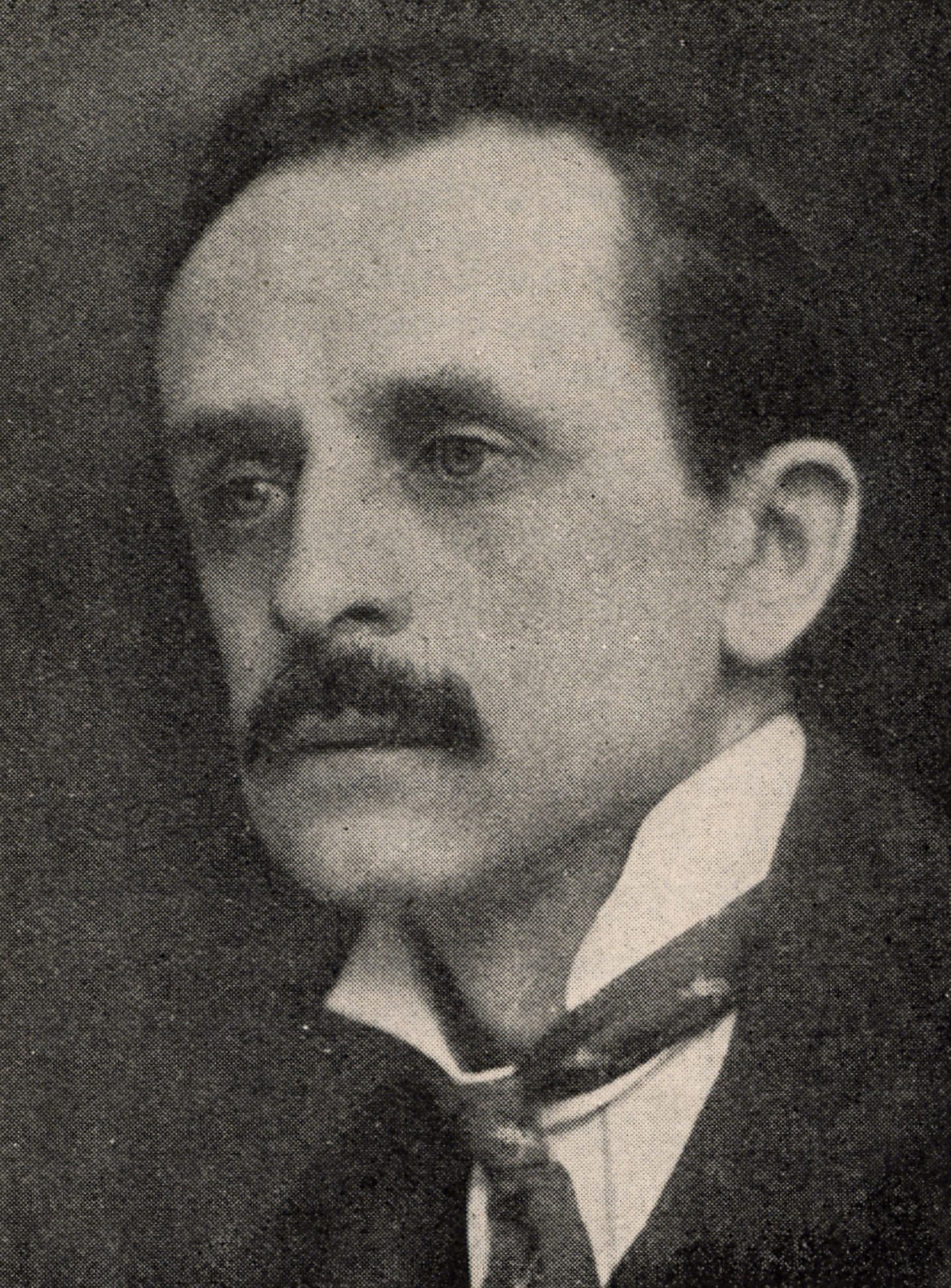
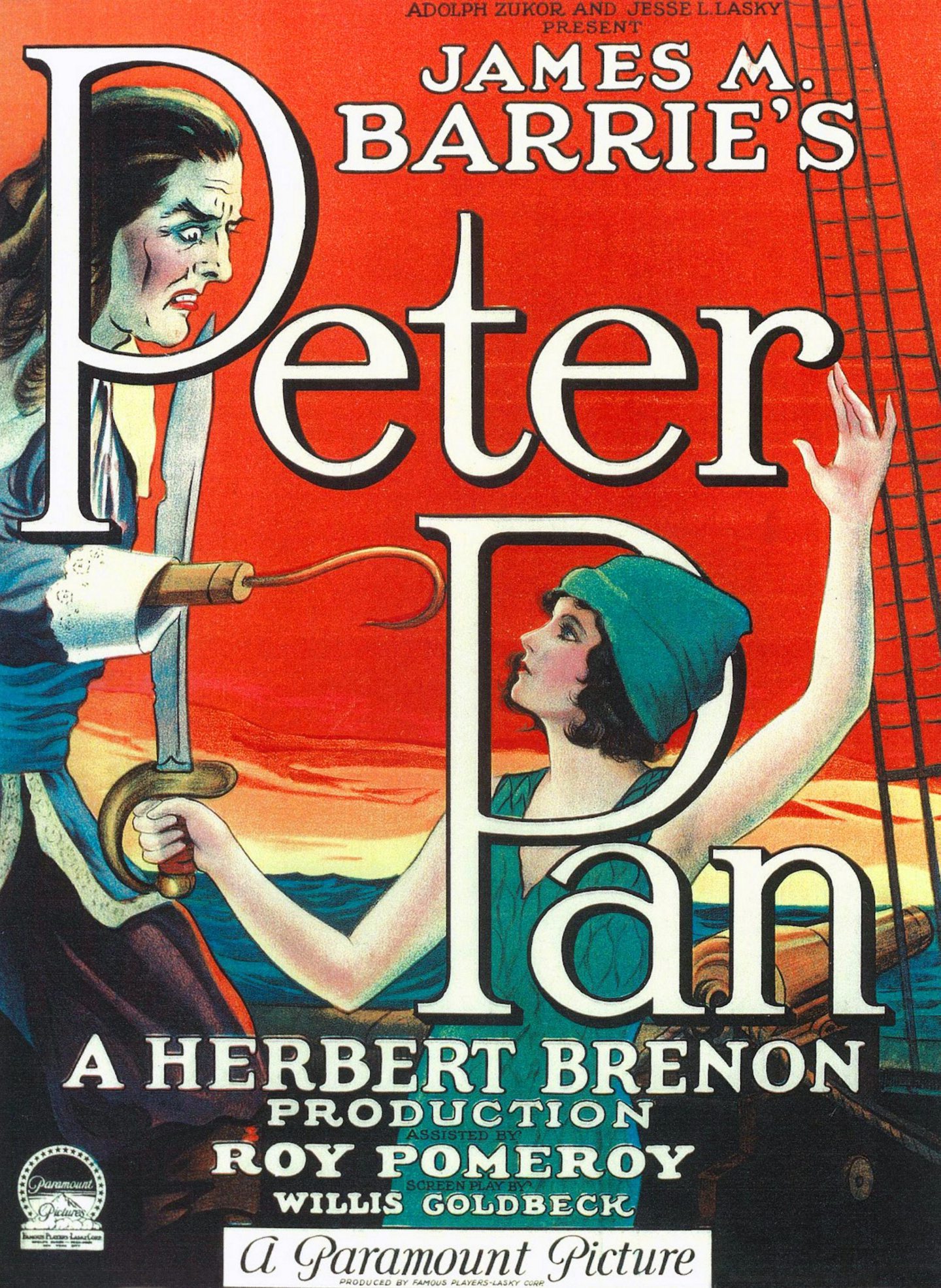
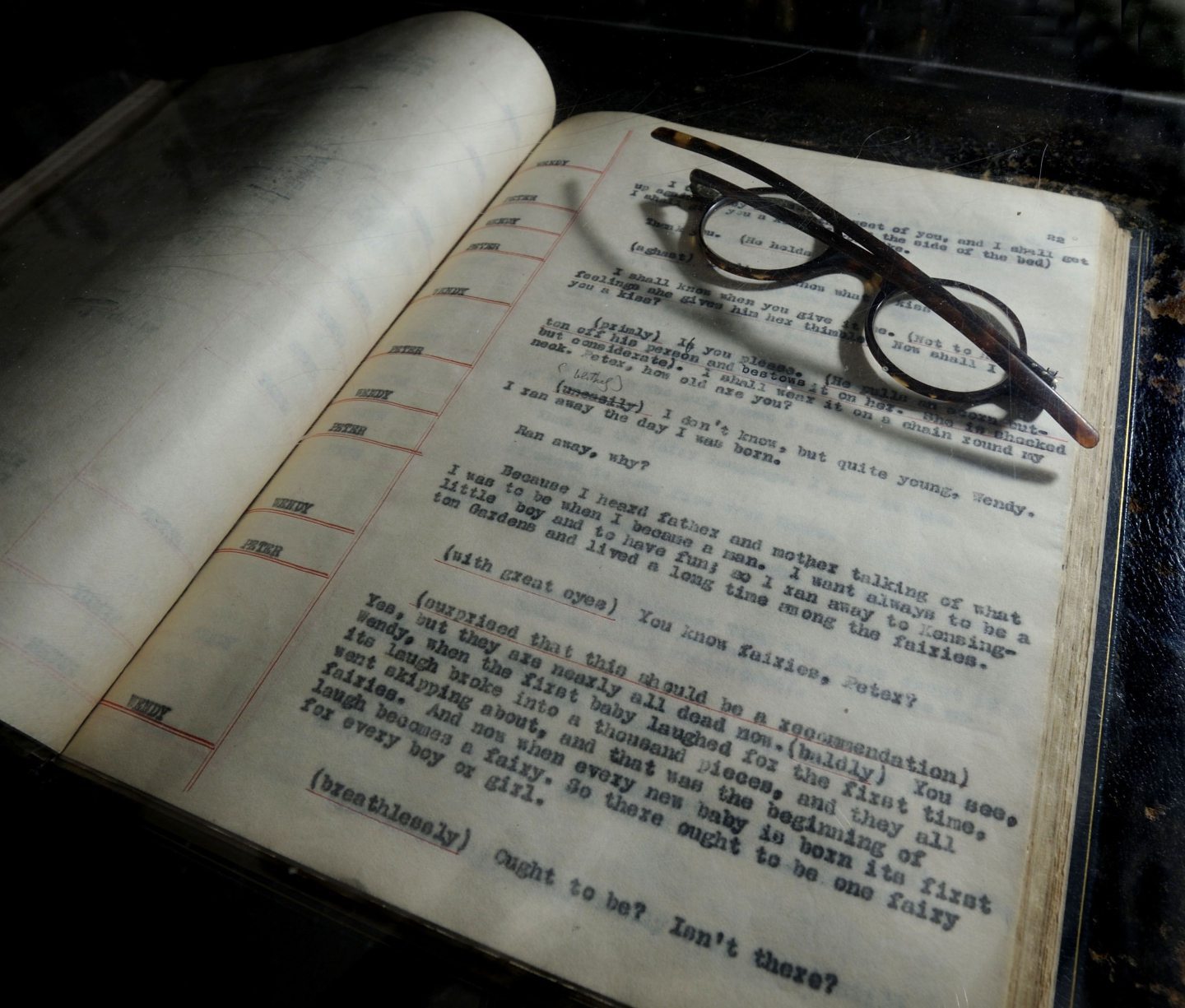
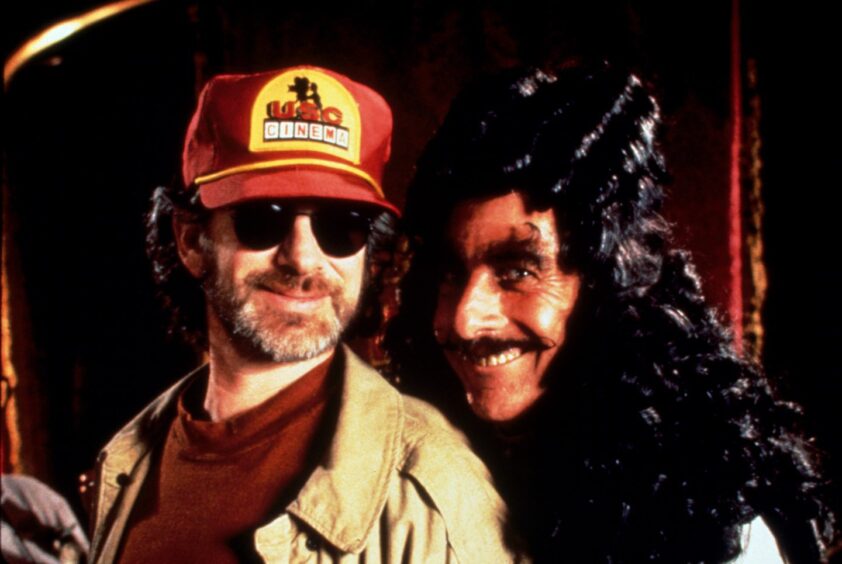
Conversation